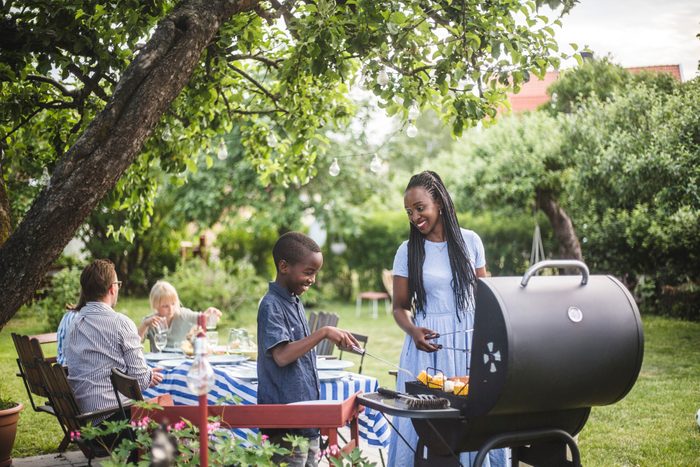
Grilling guidelines to keep everyone safe
Barbecue fare has been tied to an increased risk of colorectal and other cancers. The chance of exposure to these potential cancer-causing compounds inherent in the grilling process, but that doesn’t mean you have to give up the grill. “A little bit of preparation, creativity and healthy food choices can really make a big difference in making grilling healthier,” says Sheena Patel Swanner RDN, LD, director of nutrition programs at the American Institute for Cancer Research. Read on for the best guidelines to grill safely all season long.
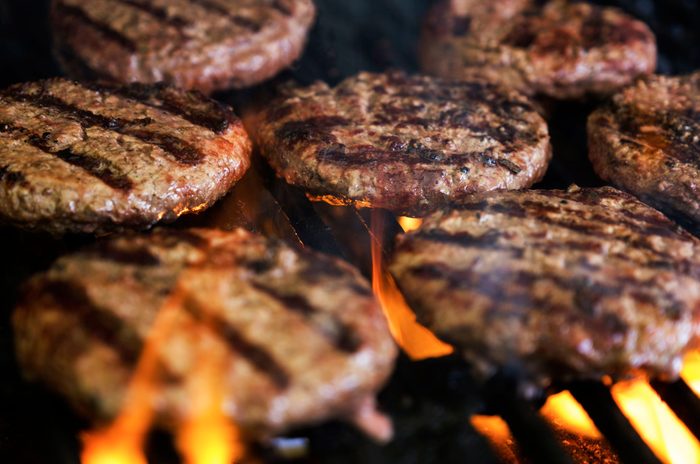
Stay clear of burned meat
If well-done burgers or hotdogs are your thing, consider this: Regularly consuming thoroughly cooked or charred meat may increase your risk of developing cancer. Specifically, they produce HCAs (heterocyclic amines) and PAHs (polycyclic aromatic hydrocarbons), according to the National Cancer Institute. HCAs form in the meat while PAHs are found in the smoke and can stick to the surface of the meat, says Swanner. “Lab studies have shown that [both of these compounds] can alter our DNA and that, in turn, can increase cancer risk.”
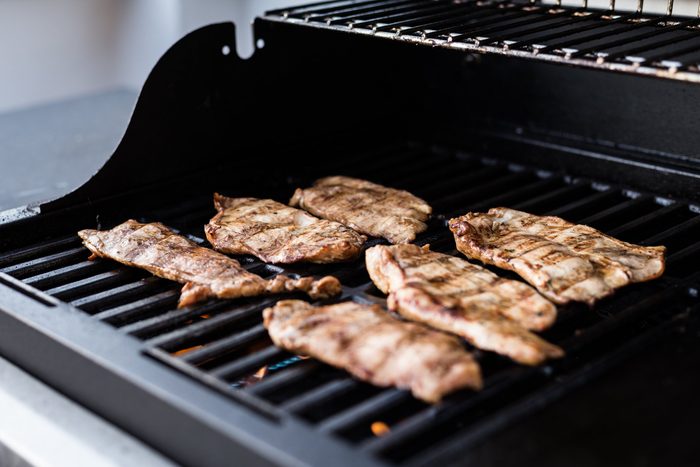
Swap for lean meats
Choose lean meats, like chicken and fish or, even better, fruits and veggies (more on this later). “Research shows that diets high in red and processed meats increase the risk of colorectal cancer,” says Swanner. Red meat—meaning beef, veal, pork, lamb, and goat—may also up your chances of developing pancreatic and prostate cancer (although to a lesser degree), according to a study published in 2015 in The Lancet Oncology. The Heart and Stroke Foundation of Canada recommends keeping meat portions to about four ounces.
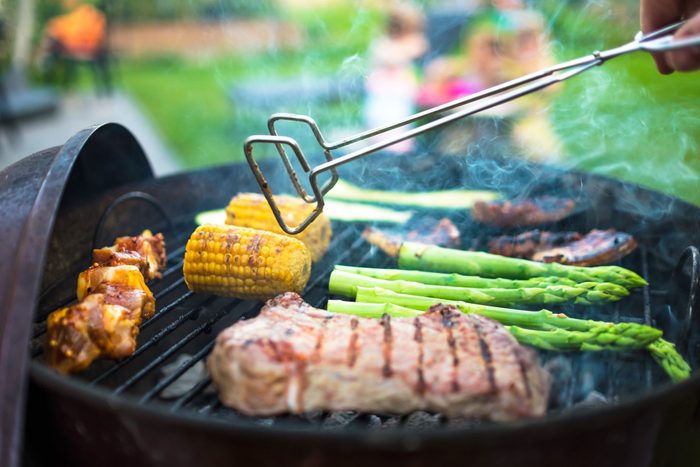
Practise frequent flipping
Push the coals to the edges of your grill, cook the meat in the center and flip it frequently. “It can prevent smoke from directly hitting the meat,” says Swanner. “Flipping it does the same thing.” This cuts down on PAH formation, which happens when fat and juices from the meat drip onto the fire, producing flames and smoke. In addition to grilling and pan frying, PAHs can also be formed when smoking meat. The compounds are also found in cigarette smoke and car exhaust fumes so yet another reason to stay away from these pollutants. (Here are some other grilling mistakes that can make you sick.)
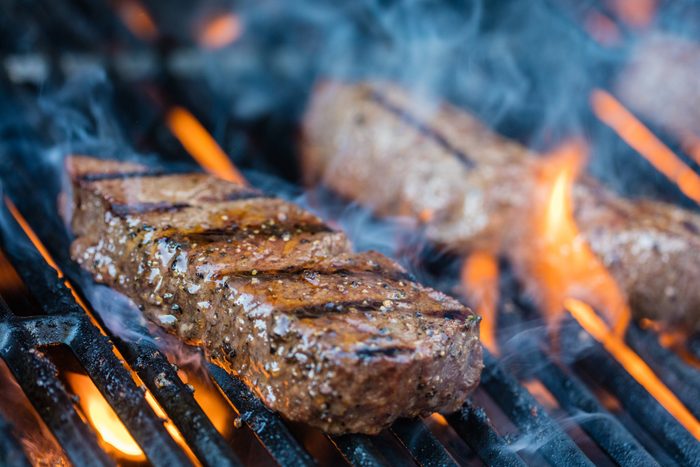
Marinate your meat
A marinade acts like a barrier between your meat and carcinogens. “This is a very critical step,” says Swanner. “Studies suggest that marinating meats for about 30 minutes before grilling can decrease the formation of HCAs.” On the other hand, you don’t want sugar-laden marinades or fatty concoctions. These will simply go to your waistline, an added risk factor for type 2 diabetes, heart disease, and other health woes. Instead, try a mixture of oil, vinegar, lemon juice with herbs and spices to add flavour, Swanner suggests.
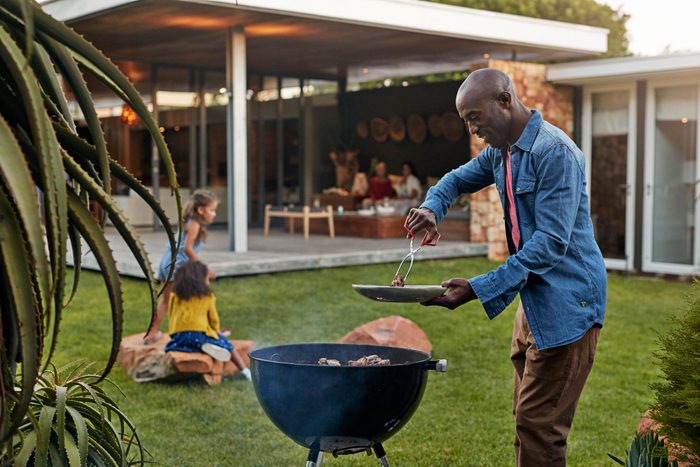
Cut back on grill time
Cooking meat for a long time also leads to the formation of carcinogens because you are exposing the food for a longer time to smoke and flames. Try fish, which cooks significantly quicker than chicken or beef—especially when cut into smaller portions, says Swanner. You can also cut back on grill time by precooking any meat in the microwave or oven. “This reduces the time meat is exposed to that smoke and [reducing the chance] PAHs could form,” she says. Be sure to place any partially cooked meat immediately on the grill to protect against bacteria and other food pathogens that cause illness.
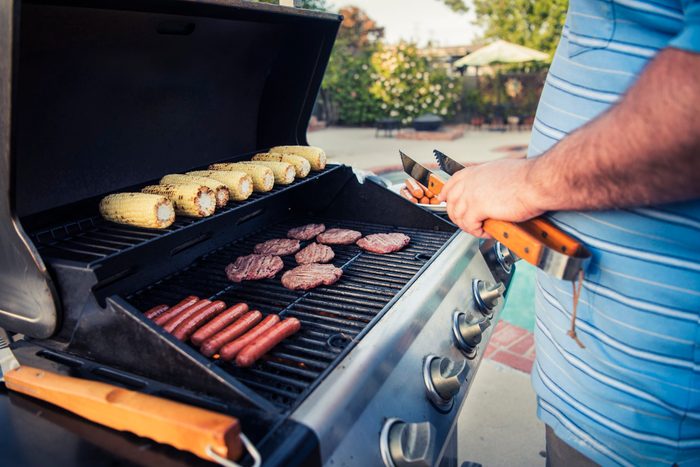
Avoid processed meats
Skip the hot dogs and sausages. They might taste good, but processed meat—which also includes corned beef, bacon, and beef jerky—has been classified as a carcinogen by scientists with the International Agency for Research on Cancer. They concluded that every additional 50 grams of processed meat (four strips of bacon or one hot dog) raised the risk of colorectal cancer by 18 percent. “We recommend little if any processed meats,” says Swanner. (Plus, learn what can happen to your body when you don’t eat enough protein.)
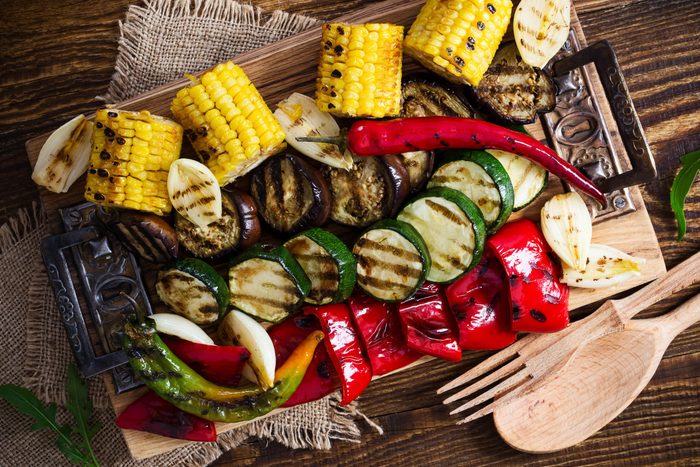
Grill veggies or fruit
You can still enjoy that grilled flavour you love and reduce your cancer risk by trading meat for veggies, veggie burgers or fruit, which are all safer choices because they won’t produce HCAs and PAHs, says Sweener. They also add vitamins, minerals and fibre. “Plan your barbecue around grilled vegetables—onions, portobello mushrooms, asparagus, and sweet potatoes,” says Swanner. For dessert, try grilled peaches, bananas, even watermelon. “When you throw fruit on the grill, the natural sugar brings out a sweet, delicious flavour,” she says.
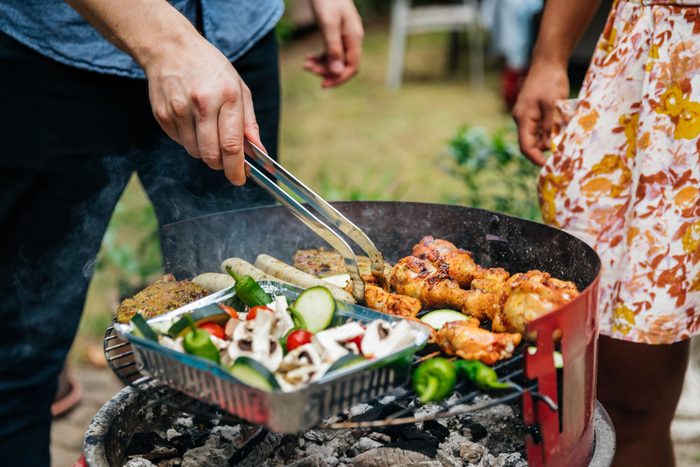
Mix it up
Try combining food groups—fruits, veggies and lean meats—for a well-rounded, grilled meal. Kebabs are an easy way to bring different food groups together. Then you can add non-grilled dishes—green salad, bean salad or a dish with whole grains—to complete the picture. “The essence of your plate is going to be healthy compounds and meat is going to be kind of a side,” says Swanner. Canada’s Food Guide suggests vegetables and fruit to account for half of your plate, while the rest should be made up of 1/4 protein and 1/4 whole grains.
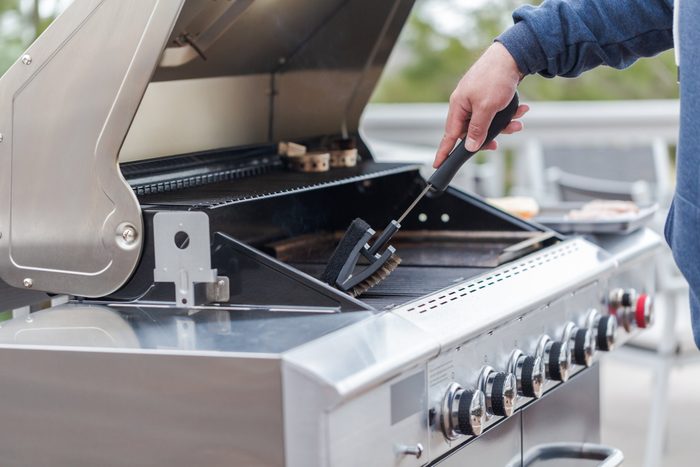
Clean the grill
Scrape down your grill and grill pan when you’re done cooking to get rid of any carcinogenic residue that has build up, and make sure you get rid of any food still stuck to the grill. With a dirty rack, you run the risk of transferring those leftover chemicals to your food the next time you fire up the grill. It may help to use foil to help keep the grill clean and “reduce flare by preventing juices/marinades from dripping or small veggies from falling in,” says Swanner.
Next, check out these healthy side dishes for your next backyard barbecue.
